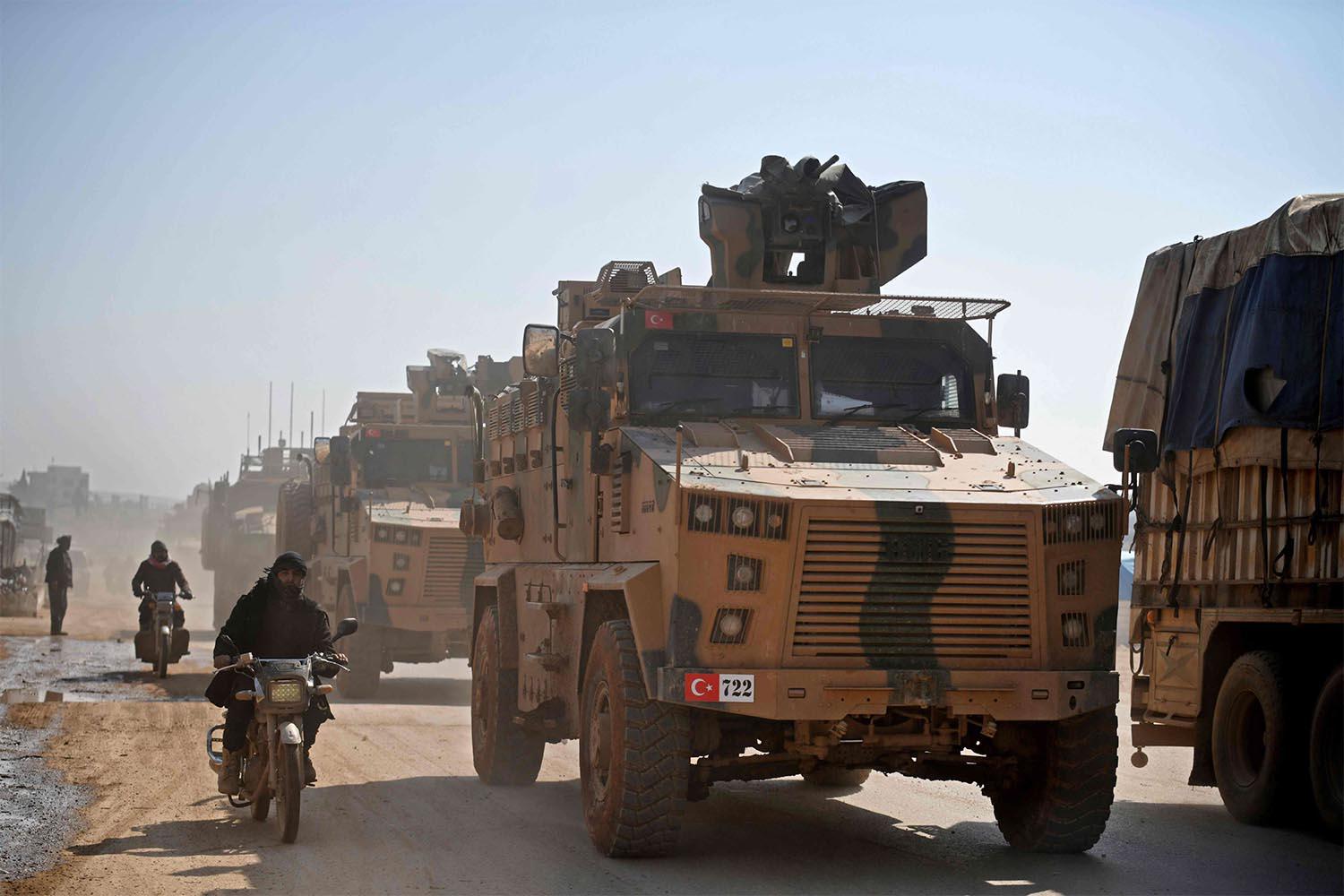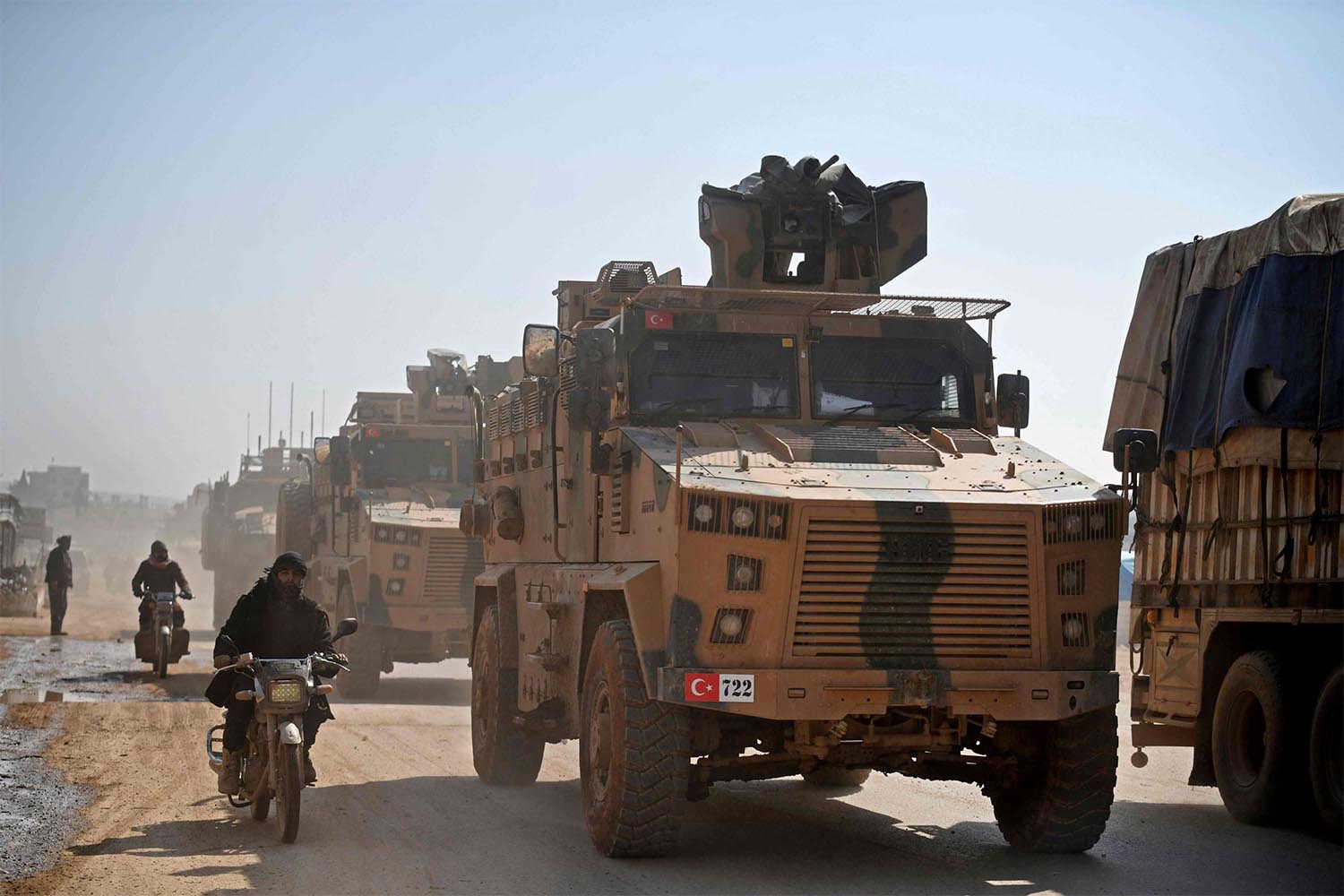In Idlib, Washington is taken hostage by its own illusions
Ankara’s deliberate military escalation, marked by an incursion into Idlib, which is legally recognised Syrian territory, set various elements in motion among the major actors involved in the growing conflict.
On one side, Moscow finds itself facing the bitter lesson that Turkish President Recep Tayyip Erdogan is not as tame as Russian President Vladimir Putin had expected. He finds that the inherent, historic mistrust between Turkey and Russia is once more confirmed. There is no surprise that Putin feels a formidable challenge from Erdogan in the geo-political chess game and this may be a tougher game from now on.
For Putin, Turkey, as ruled by Erdogan, is a significant component in the Russian strategy to weaken the Western bloc, especially NATO. However, the nature of this significance makes it difficult for Moscow to simply sweep Ankara aside as it stages the crucial steps to help Syria re-establish control of its territory.
Will the strongman of Russia have to choose between full-scale support for the Bashar Assad regime or will he be forced to make sacrifices to establish a terror balance, carving Idlib in two — north and south of the M5 highway — thereby allowing Erdogan to push through his will?
Much speaks for the former: If he has drawn clear enough conclusions from the latest escalation of words and deeds by Erdogan, Putin would have to deal with his counterpart’s trademark untrustworthiness. Here we are talking about empty promises made with smiles or Erdogan, even later, completely going against his own word. Putin would have to weigh all this against Erdogan’s strategy in Syria and Libya. The more he compromises, the more his own Damascus strategy would be damaged.
By constantly using the refugee flow argument, Erdogan keeps a frightened European Union dependent on his moves and keeps Ankara’s doors open to the West. In addition to this, by insisting on a permanent presence (this is certainly Ankara’s intention for northern Syria) in Idlib, he would hold the sword of Damocles over Assad.
The latter has, of course, nothing to do with demanding justice for the crimes against humanity committed in the Syrian civil war but rather to continue a political war based on an obstinate desire to continue flying the totalitarian flag of the Muslim Brotherhood tradition. Putin’s strategy, which is built on the annihilation of jihadists on Syrian soil, will clash with Erdogan’s — sooner or later.
The irony — and this cuts across the entire Syrian quagmire since 2011 — is that the Russian strategy is identical to the one staged by the United States. Washington should, by now, understand, that as long as Russia remains invited in Syria, there is no real way to challenge the legitimacy of the Assad regime.
Damascus is not a real threat to NATO or to the Arab League. The real threat remains, albeit weakened, from the armed Islamist “cause.” Yet, instead of coordinating a decisive, joint action to cleanse northern Syria of these armed Islamists, first Rojava and then Idlib have been seen as the arena for wrestling between Washington and Moscow. One can also add the European Union to this equation.
Statements by US Secretary of State Mike Pompeo, followed by a rapid visit to Ankara by US Envoy to Syria James Jeffrey, make it clear that international politics is sadly being overshadowed by folly.
The astonishing pro-Erdogan rhetoric was based on the premise that the Turkish military presence on Syrian soil was legitimate, a ridiculous position that has nothing to do with international law.
The challenge Putin is facing with regards to Erdogan has been noted here, yet the Trump administration’s shortsightedness is also clearly inconceivable — except, perhaps, that it is a consequence of the chaos reigning in Washington.
This is exactly the playground Erdogan would prefer remained unchanged. Turkey’s mighty president, whether one claims he is or is not weaker these days, thrives on making maximum use of major divisions and battles of will on the international stage, playing one against the other, successfully.
There is nothing surprising in his by now well-known pattern. The amazing part is that other global leaders, far more powerful and able than Erdogan, choose to fall into this trap, prey to their illusions.
Yavuz Baydar is a senior Turkish columnist, and news analyst. A founding member of the Platform for Independent Journalism (P24) in Istanbul, he has been reporting on Turkey and monitoring media issues since 1980. A European Press Prize Laureate in 2014, he is also the winner of Germany's 'Journalistenpreis' in 2018.
Copyright ©2020 The Arab Weekly







